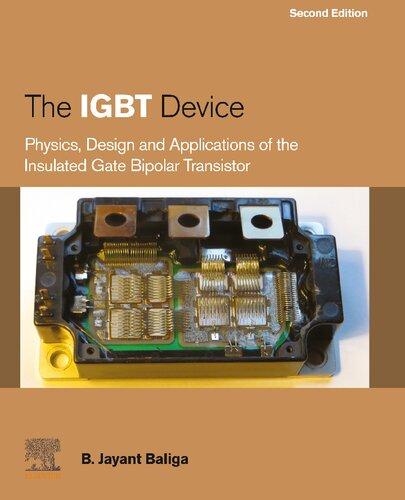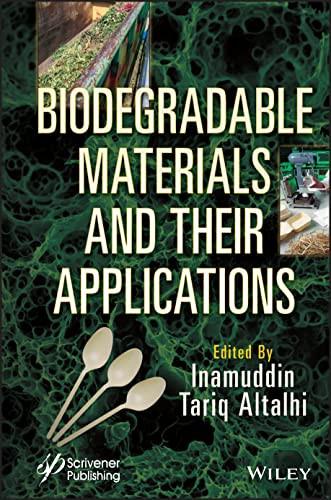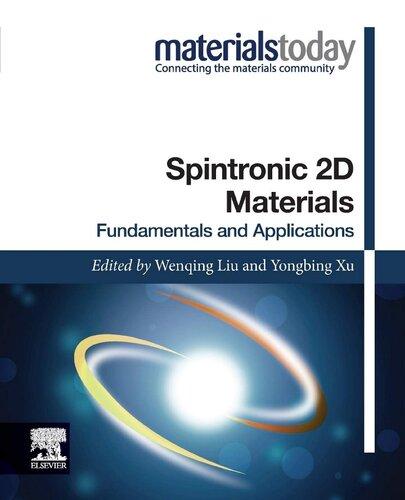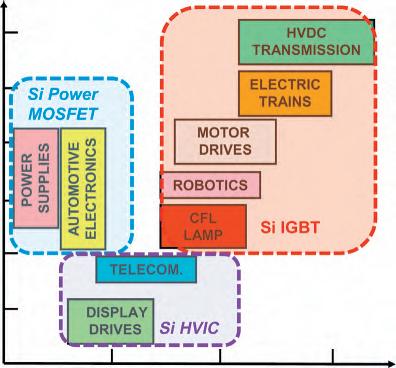1.4Siliconcarbidepowerrectifiers
SiliconbipolarpowerP i Ndiodesoperatewiththeinjectionofminoritycarriers duringon-statecurrentflow [2].Thesecarriersmustberemovedwhenswitching thedevicefromtheon-statetotheoff-state.Thisisaccomplishedbythereverse recoveryprocessthatproducesalargereversecurrentduringturnoff.Thiscurrent producessignificantpowerlossesinthediodeandtheswitchesinthecircuits.
Another random document with no related content on Scribd:
their arrangements. Even if she weren’t altogether able to understand, she should, Mrs. Luke said, be given the opportunity of doing so.
So when breakfast was cleared away, and Jocelyn had withdrawn to his attic, Mrs. Luke shut herself up as usual with Sally in the dining-room, and spent the morning patiently explaining.
Sally said nothing. This made it difficult for Mrs. Luke to know whether she had understood. And yet how simple it was. Jocelyn’s work, the paramount importance of his work, on which both his and Salvatia’s future and perhaps—who knew?—the world’s, depended; their present, but no doubt temporary, poverty, which made it out of the question for them to follow him to Cambridge till Almond Tree Cottage had been let; the necessity of teaching Salvatia, during long, quiet, uninterrupted days, all the little odds and ends, so small and yet so indispensable, that go to make up the wife of a gentleman; and the impossibility of asking Jocelyn to leave his rooms in College and live in anything as uncomfortable and makeshift as the sorts of lodgings within their means were bound to be. Of course had Salvatia been alone in the world, and with nowhere at all to go to, some such arrangement would have had to be made. But she wasn’t alone. She had her husband’s mother, and her husband’s mother’s home, and affection, and sympathy, and the warmest welcome.
‘Just a little patience, Salvatia dear,’ said Mrs. Luke, ‘and our little problems will all quite naturally solve themselves. We shall have got a tenant for this house, Jocelyn will have found a nice home for us in Cambridge, you will meanwhile have learnt everything necessary to make you able to be its perfect little mistress, and we’ll all live happily ever after.’
Now wasn’t this kind? Surely it was very kind, thought Mrs. Luke. And wasn’t it loving? Surely it was altogether loving. Yet Salvatia said never a word.
Indeed, Sally was necessarily dumb. She had too few words to enter into controversy with Mrs. Luke, and knew that if she tried to she would only collapse into tears. But after lunch, through which she sat saying nothing, when Mrs. Luke sent her out into the garden alone because she herself had to go down that afternoon to the shops to see about the cakes for her party next day, Sally went to the one corner which wasn’t overlooked by the windows of the house, owing to an intervening tool-shed, and, leaning
against the iron rails that separated Mrs. Luke’s property from Mr. Thorpe’s, wept bitterly.
She clutched the top rail with both hands, and laying her head on them wept most bitterly; for it was plain now to her that her dream of two rooms and no lady was never to come true, and that meanwhile—what was the good of blinking facts?—her husband had deserted her. And she had no money; only five shillings her father had given her as a wedding present,— that was all. Handsome as a present, but not enough, she was sure, to get her home to him. If only she could go home to him, and escape any more of Mrs. Luke, and escape the terrible, the make-you-come-over-all-cold-tothink-of party! Then, when Usband arrived at his college, she could turn up there and give him a surprise, and find a room for herself somewhere close, and live in it as quiet as a mouse, not bothering him at all or interrupting, but near enough to feel still married.
Sally’s body was shaken by sobs; even the rail on which she leant her head, her head with its bright, tumbled hair, whose ends, getting into her eyes, were wet and darkened by her grief, was shaken. She could bear no more. She couldn’t bear any more of anything in the house behind the toolshed. Yet what was she to do? Five shillings would get her nowhere—— ‘Crying, eh?’ said a voice on the other side of the fence. And looking up with a great start, Sally beheld Father-in-law.
M�. T�����, being a man accustomed all his life to success in everything he undertook—except in the case of Annie, but even she had been a success at first—had spent a week of bitterness.
He was aggrieved, deeply aggrieved; and he hated the hole and corner way Mrs. Luke had hidden from him, refusing to see him, refusing any sort of explanation, turning him down with a single letter, and not answering when he wrote back.
He, who was very well aware that he was conferring everything, that he was giving her a chance in a million, when he called was shown the door; and all he had done for her, the affection he had bestowed, the gifts he had lavished, were as though they had not been. In the sight of South Winch and of his own household he was humiliated. But it went deeper than that: he knew himself for kind, and no one wanted his kindness; he knew himself for generous, and no one wanted his generosity either. Naturally he was full of resentment; so full, that he hadn’t even gone to his office regularly that week, but had hung about his house and grounds instead, fault-finding.
Where he hung about most was that part of his plantations which abutted on the meadow dividing Abergeldie from Mrs. Luke; and wandering among his conifers he could see, without himself being seen, anything that went on in her miserable plot of ground. If he had been told that such behaviour was undignified he would have replied that dignity be damned; for not only was he smarting under Mrs. Luke’s ingratitude, not only was he annoyed beyond measure at not going to get the wife he no longer really wanted—who would wish to be tied up to a jealous, middle-aged woman, when there were so many pretty, cheerful girls about?—but he longed, with a simple longing he hadn’t felt since he first went sweethearting as a boy, to see Sally again. He did see her; always, however, arm in arm with Hell’s Fury, as he now called her who had so recently been his Marge. Then, on this Wednesday afternoon, more than a week after Mrs. Luke had shown herself in her true colours—a jolly good thing he had found her out before and not after marriage, thought Mr. Thorpe, who yet was enraged that he had,—as he
wandered among his conifers after luncheon, nursing his grievances and glancing every now and then at the little house across the meadow, so insignificant and cheap and nevertheless able to play such a part in his life, he saw young beauty at last come out alone, and go round to the back of the tool-shed, and behave as has been indicated.
For a few minutes Mr. Thorpe stayed where he was, in case the H.F.— so, for convenience sake, did he abbreviate the rude nickname he had given Mrs. Luke—should come out too; but when some time had passed and nobody appeared, he concluded that the two high-brows had gone for a walk, and Beauty for once was alone. Crying, too. What had they been doing to the girl, that precious pair of hoity toity treat-you-as-dirters, Mr. Thorpe asked himself. Then, climbing cautiously over the fence, and crossing the field close to the belt of firs, he arrived unseen and unheard to where Sally, her head bowed over her hands, was standing crying.
How kind he was. What a comfort he was. And how clear in his instructions as to what she was to do. It was quite easy to say things to Father-in-law; he seemed to understand at once.
Nobody had told Sally he wasn’t her father-in-law. The Lukes’ habit of silence towards her about their affairs had left her supposing he was what he said he was, and she herself had heard him not being contradicted by Mrs. Luke when she came into the drawing-room that day and he told her he was making friends with his new daughter.
Sally was aware that Jocelyn’s own father was dead, and she had at first supposed Mr. Thorpe was Mrs. Luke’s second husband. In the confusion of mind in which she had been since arriving at Almond Tree Cottage, she had had no thoughts left over for wondering why, if he were, he lived somewhere else. Dimly the last few days, not having seen him again, she had begun to think, though with no real interest, that perhaps Mrs. Luke hadn’t quite married him yet, but only very nearly. Anyhow it didn’t matter. He said he was her father-in-law, and that was good enough for her. Such a kind old gentleman. Much older than her own father. Might easily have been her grandfather, with all that bald head and grey moustache.
And Mr. Thorpe’s pleasure, nay, delight, at being able to help Beauty and at the same time give those two high-brows something to talk about, was very great. This was indeed killing two birds with one stone—and what birds! He listened attentively to all she brokenly and imperfectly said; he
entirely applauded her idea of going back to her father for a bit, and assured her there was no place like home; he told her he would send her there in one of his cars, quite safe from door to door; he advised her to stay with her father till her husband did his duty, which was to make a home for her and live with her in it; he asked why she should allow herself to be deserted, to be left alone with Mrs. Luke, who would do nothing but try and cram her head with rubbish——
‘Don’t you like ‘er?’ asked Sally, surprised.
‘No,’ said Mr. Thorpe stoutly.
‘But you’re goin’ to marry ‘er,’ said Sally, more surprised.
‘Catch me,’ said Mr. Thorpe.
‘But then you ain’t my father-in-law,’ said Sally, more surprised than ever.
‘Yes I am,’ said Mr. Thorpe hastily. ‘Once a father-in-law always a father-in-law,’ he assured her,—and hurried her off this subject by asking her why she should be treated by her husband as if she weren’t married at all, and by what right young Luke thought he could behave differently from any husband any one had ever heard of. Scandalous, said Mr. Thorpe, to leave her. Shocking. Incomprehensible. And that so-called husband of hers with his marriage vows not yet had time to go cold on his lips!
In fact, Mr. Thorpe said out loud and beautifully everything Sally had thought and not been able to get into words.
The result was that, encouraged and supported, indeed urged and driven, she took one of those desperate steps characteristic of the very meek, and, acting according to Mr. Thorpe’s clear and precise instructions, stole out of the house at five next morning—the very day of the party, from which he, who knew all about it from his housekeeper, and had tried to console himself by thinking of the piles of strawberries and peaches and quarts of cream he wasn’t going to send to it, insisted that she should at all costs escape—carrying only a little bag, with her five shillings in it and her comb and toothbrush; and, creeping down the stairs holding her breath, got out without a sound through the kitchen window, anxiously listening for a moment as she passed the shut sitting-room door on the other side of which Jocelyn lay asleep,—Jocelyn, who that night, being still much annoyed with her, had very fortunately not been upstairs.
At the corner of the road was Mr. Thorpe’s car. He himself remained discreetly in bed. No use overdoing things. Besides, he could wait. He knew where to find Beauty when the time came, which was more than those damned Lukes did; and he had given his chauffeur the necessary orders the night before, and could rely on their being carried out to the letter; so that Sally found, when she got into the car, which was more splendid outside and more soft inside than she could have believed possible, not only a lovely rug of the silkiest fur, which the chauffeur, a most attentive young gentleman, wrapped round her legs as carefully as if they were the Queen’s, but a basket full of everything for breakfast, even hot coffee, and an enormous box of chocolates which were for her to keep, the chauffeur said, with Mr. Thorpe’s compliments. And such was the effect on her of all this moral and physical support that she no longer, as she was smoothly and deliciously borne along through sleeping South Winch, across awakening London, past sunshiny fields and woods just flushing green, on and on, into Essex, into Cambridgeshire, smooth and swift, with a motion utterly different from the one Jocelyn’s car made and completely confidenceinspiring, she no longer felt as if she were doing anything that was frightening, and also, perhaps, wrong. Could anybody be doing anything very wrong who had such a splendid car to sit in, and such a respectful and attentive young gentleman driving it?
Mr. Pinner disillusioned her.
For many years he hadn’t tasted such quiet happiness, such contentment and well-being, as during the four weeks he had been without Sally. Her marriage to a gentleman, to one of the scholars from Cambridge, was known to every one in the village, and he was proud of it, very proud. Sally, besides having been handed over safe and sound to some one else’s care, had risen in life and was now a lady. He had every reason to be proud of her, and no further bother. Now for the first time he could live, after forty years of the other thing, free from females. Was it sinful, he asked himself occasionally, and at variance with God’s Word, to be so very happy all alone? He didn’t think it could be. He had served his time. Forty years in the wilderness he had had—just like the Israelites, who had come out of it too, just as he had, and enjoyed themselves too at last, as he was enjoying
himself, quietly and nicely. No husband or father could have been fonder of his wife and daughter than he had been of his, or done his duty by them more steadily. Surely now, both of them being safely settled, it couldn’t be wrong to like having a rest? He loved Sally, but she had been a backbreaking responsibility. For four weeks now he had enjoyed himself, and with such relish that when he got up in the morning and thought of the quiet, free hours ahead of him, he had often quavered into song. Then came the day when, peacefully dusting the toffee in his window, and thinking how prettily the birds were singing that fine spring morning, and of the little bit of mutton he was going to do in capers for his dinner, he saw an enormous closed car coming down the village street, and with astonishment beheld it stop in front of his shop, and Sally get out.
Mr. Pinner knew enough of what cars cost to be sure this one wasn’t anyhow Mr. Luke’s. Things like that cost as much as two of Mr. Luke’s five hundreds a year; so that the car, of which Sally had been so proud, far from impressing him only frightened him. And when, after the chauffeur had handed her a bag, he saw him turn the car round and disappear, going away again without her while she came running up the steps, he was more frightened than ever.
What had happened? Not a month married, and back again by herself with a bag.
‘I come ’ome,’ said Sally in the doorway, still bright with the sheer enjoyment of the ride, yet, faced by her father’s amazement, conscious of a slight lowering of her temperature. ‘My! You ain’t ’alf small, Father,’ she added, surprised, after looking at the tall Jocelyn and the broad Mr. Thorpe, by how little there was of Mr. Pinner. ‘Almost count you on the fingers of one ’and,’ she said.
‘Want more fingers than I got to count you,’ retorted Mr. Pinner, retreating behind the counter and feeling that these words somehow constituted a smart preliminary snub.
He didn’t offer to kiss her. He stood entrenched behind his counter and stared up at her, struck, after having got out of the habit of her beauty, into a new astonishment at it. But it gave him no pleasure. It merely frightened him. For it blew up peace.
‘Where’s your ’usband?’ he inquired, afraid and stern.
‘Oh—’im,’ said Sally, trying to look unconcerned, but flushing. ’E’s with ’is mother, ’e is. Ain’t you pleased to see me, Father?’ she asked, in an attempt to lead the conversation off husbands at least for a bit; and tighter to her side she hugged the box of chocolates, because the feel of it helped her to remember Father-in-law’s approval and encouragement. And he was a gentleman, wasn’t he? And a lot older even than Father, so must know what was what.
‘Oh, indeed. With ’is mother, is ’e,’ said Mr. Pinner, ignoring her question. ‘ ’Oos car was that?’ he asked.
‘Father-in-law’s,’ said Sally, hugging her chocolates.
‘Oh, indeed. And ’oo may father-in-law be?’
‘The gentleman as is—as was goin’ to marry Mr. Luke’s mother.’
‘Oh, indeed. And you ride about in ’is car meanwhile. I see.’
‘Lent it to me so I can come ’ome.’
‘What do ’e want to send you ’ere for, then?’ asked Mr. Pinner, leaning on his knuckles, his blue eyes very bright. ‘Ain’t your ’ome where your ’usband’s is? Ain’t that a married woman’s ’ome?’
‘I only come on a visit,’ faltered Sally, whose spirits were by now in her shoes. Her father had often scolded her, but she had never been afraid of him. Now there was something in his eye that made her feel less sure that she had taken, as Mr. Thorpe had told her, the one possible and completely natural step. ‘I only come for a few days, while Mr. Luke——’
‘Mr. Luke know you’re ’ere?’ interrupted her father.
‘ ’E don’t know yet,’ said Sally. ‘But I——’
‘That’s enough,’ said Mr. Pinner, holding up a hand. ‘That’s quite enough. No need for no more words. You go back right away to your ’usband, my girl. Come to the wrong box, you ’ave, for ’arbourin’ runaway wives.’
‘But, Father—’ she stammered, not yet quite able to believe that in coming back to him she had only got out of the frying pan into the fire, ‘you got to listen to why I come——’
He held up his hand again, stopping her. He had no need to listen. He could see for himself that she was a runaway wife, which was against both man’s and God’s laws.
Sally, however, persisted. She put her bag down on the counter, behind which he firmly remained, and facing him across it tried to give him an idea of what had been happening to her, and what had been going to happen to her much worse if she had stayed.
He refused to be given an idea of it. He turned a deaf ear to all explanations. And he was merely scandalised when she said, crying by this time, that she couldn’t, couldn’t be left alone with Mr. Luke’s mother, for where a husband thinks fit to leave his wife, said Mr. Pinner, always supposing it is respectable, there that wife must remain till he fetches her. This he laid down to Sally as a law from which a married woman departs at her peril, and he laid it down with all the more emphasis, perhaps, because of knowing how unlikely it was that he himself would ever have had the courage to enforce it in the case of Mrs. Pinner, and that, if he had, how certain it was she wouldn’t have stayed five minutes in any place he tried to leave her in.
Sally was in despair. What was she to do? The little shop looked like paradise to her, a haven of peaceful bliss after the life she had led since last she saw it. She cried and cried. She couldn’t believe that her father, who had always been so kind really, wouldn’t let her stay with him for the two days till Jocelyn got back to Cambridge.
But not even for one night would Mr. Pinner, who was secretly terrified of Jocelyn, and sure he would be hot on his wife’s tracks and make a scene and blame him if he gave her so much as an inch of encouragement, harbour her. Back she should go by the very next train to her husband and her duty; and the breaking of marriage vows, and the disregard of the injunctions in the New Testament which had so much shocked her in Jocelyn, were now thrown at her by Mr. Pinner, who accused her of precisely these. Useless for Sally, clinging to the hope of somehow being able to justify herself and be allowed to stay, to say through her tears that the Gospel didn’t mention what a woman had to do but only what a man had to, because to that Mr. Pinner replied that no Gospel could be expected to mention everything, and that in any case, when it came to sinning, the sexes couldn’t be kept apart.
He walked her off to the little station three miles away. The bag the respectful chauffeur had wanted to carry for her up those few steps she now carried three miles herself.
‘Pity you was in such a ’urry to let that there car go,’ Mr. Pinner remarked sarcastically, as they trudged almost in silence along the lanes.
Sally gulped; delicately, because even her gulps were little gulps,— gentle, delicate little things. She didn’t know what was to become of her, she really didn’t. Go back to that dreadful house, and arrive in the middle of the party? Face real wrath, real deserved wrath, from those who even when they were being kind had terrified her? So thoroughly had Mr. Pinner’s horror at what she had done cleared her mind of Mr. Thorpe’s points of view that she felt she hadn’t a leg to stand on, and would do anything, almost, sooner than, covered with shame, go back to the anger of the Lukes. But what? What could she do except go back? Yet if she had been miserable there while she was still good, how was she going to bear it now that she had become wicked? She shuddered to think of what Mrs. Luke would be like really angry—and Mr. Luke, who had the right not to leave her alone even at night....
Sadly did Sally gulp from time to time, and every now and then emit a faint sob, as she walked in silence that morning beside the adamant Mr. Pinner to the branch-line station. She hadn’t been in the Woodles district very long, but it seemed to her as she passed along its quiet lanes that she loved every stick and stone of it. It was what she understood. It was peace. It was home. Her father went with her as far as Cambridge, so as to put her safely into the express to Liverpool Street, and his instructions were, after buying her a first class ticket—he felt that Mr. Luke would wish her to travel first class, and it gave him a gloomy pride to buy it—that she was to take a taxi from Liverpool Street, and go in it all the way to South Winch.
He then, with the ticket, gave her a pound note.
‘It can’t be more than ten miles out,’ said Mr. Pinner, who had never in his life before squandered money, let alone a pound, on a taxi, but who tried to console himself with the thought that it would have been well spent if only it got Sally safe back to where she belonged; and though he was depressed he was also proud, for it, too, gave him a kind of sombre satisfaction.
‘Been an expensive day for me, this,’ he said, gloomy, but proud.
Sally gulped.
He kept her in the waiting-room at the station till the last moment, for she was attracting the usual too well-remembered attention, and beauty in tears was even more conspicuous than beauty placid, and then he hurried her along to the front of the train, and put her in a carriage in which there was only one lady—a real lady, of course, thought Mr. Pinner, anxiously taking stock of her, or she wouldn’t be travelling first class.
‘Beg pardon, Madam,’ he said in his best behind-the-counter manner, taking his hat off. ‘You goin’ to London by any chance?’
Seeing that the train didn’t stop till it got there, the lady couldn’t say anything but yes; and then Mr. Pinner asked her if she would mind keeping an eye on his daughter, who, though a married lady too—the lady made a little bow of acknowledgement of this tribute to her evidently settled-down appearance, though she was, in fact, a spinster—yet didn’t know her way about very well.
Then when the train began to move, and Sally’s face, as she leant out of the window to say goodbye, was a study in despair, Mr. Pinner relented enough to pat her tear-stained cheek, and running a few steps beside the carriage bade her not take on any more.
‘What’s done’s done,’ he called out after the train, by way of cheering her.
And Sally, dropping back into her corner, pulled out her handkerchief and wept.
§Yes. What was done was done true enough, she thought, mopping the tears as they rolled down her face, including her having married Mr. Luke and his mother; for she now regarded him and his mother as all of a piece.
The lady at the other end of the carriage, who, however hard she tried, couldn’t take her eyes off her—and she did try very hard, for she hated staring at grief—ventured after a while to repeat Mr. Pinner’s advice, and suggested, though in more Luke-like language, that Sally shouldn’t take on. Whereupon Sally, the voice being sympathetic and the face kind, took on more than ever.
‘Oh, please don’t,’ said the lady, much concerned, moving up to the seat opposite her. Such liquefaction she had never seen, nor such loveliness in spite of it. When she herself cried, which was very rarely—what was the good?—she became a swollen thing of lumps. ‘You mustn’t, really,’ she begged. ‘Your eyes—you simply mustn’t do anything to hurt them. What is it? Can I help at all? I’d love to if I could——’
By the time they were rushing through Bishops Stortford Sally had told her everything. Incoherent and sobbing at first, there was something about this lady that comforted her into calmness. She wasn’t at all like Mr. Thorpe, yet she took his sort of view, not Mr. Pinner’s, and was even more sympathetic, and even more understanding. It really seemed, from the questions she asked, as if she must know the Lukes personally. She said she didn’t, when Sally inquired if this were so, and laughed. She was very cheerful, and laughed several times, though she was so kind and sorry about everything.
‘You can’t go back there today, anyhow,’ she said at last. ‘Not into the middle of that party——’ she laughed and shuddered, for Sally had explained with a face of horror that nobody at all was going to be at the party who wasn’t either a lady or a gentleman except herself. ‘You shall come and stay with me for a few days till your Mr. Luke goes to Cambridge, and then we’ll see what happens. But I’m not going to let you go back into the clutches of that Mrs. Luke.’
And she leant forward and took her hand, and smiled so kindly and cheerfully, and said, ‘You’ll come for a day or two to our house, won’t you? My father isn’t there just now, and I’ve got it all to myself. Come till we have made up our minds about what to do next.’
This really seemed too good to be true. Sally turned scarlet. Was she saved? Saved, at the very last minute, from horror and disgrace?
‘Just for a day or two,’ said her new friend, who couldn’t take her eyes off Sally’s face, ’till your husband can find somewhere for you to live. We’ll help him to look. I’ll come with you, and help to find something. No, it doesn’t matter a bit about your not having any luggage—I can lend you everything. And we’ll write to him if you like, and tell him you can’t and won’t stay with his mother. Don’t you think this is quite the best plan? Don’t you, Sally?’
And she smiled, and asked if she might call her Sally.
‘But,’ hesitated Sally, for she didn’t want to get anybody into difficulties, ‘Father says I’m a runaway wife, and ’e wouldn’t ’arbour me ’imself because of that.’
‘Oh, but somebody must. And I’m the very one for it, because I’m so respectable, and not a wife. Don’t you worry, you lovely thing. We really must bring your Mr. Luke to his senses. By the way, hasn’t he got a Christian name?’
‘You never ’eard such a name,’ said Sally earnestly, who felt, to her own great surprise, almost as comfortable and easy with this strange lady as she had with Mr. Soper. ‘Outlandish, I call it.’
Her new friend laughed again when she told her it was Jocelyn. ‘Aren’t you delicious,’ she said, her bright eyes screwed up with laughter.
Sally liked being called delicious. It gave her assurance. Jocelyn had called her lots of things like that in his red-eared moments, but they hadn’t done her much good, because they never seemed to go on into next day. This lady was quite in her ordinary senses, her ears were proper pale ears, and what she said sounded as though it would last. And how badly Sally needed reassurance after the things Mr. Pinner had said to her that morning!
‘Now you come along with me,’ said her friend, jumping up as the train ran into Liverpool Street, her eyes, which were like little black marbles, dancing. ‘And please call me Laura, will you? Because it’s my name.’
She leaned out of the window, and waved. A chauffeur came running down the platform and opened the door; a car was waiting; and in another minute Sally was in it, once more sunk in softness, and once more with a lovely fur rug over her knees, while sitting next to her, talking and laughing, was her new friend, and sitting opposite her, neither talking nor laughing, a smart young lady in black, carrying a bag, who had appeared from nowhere and wasn’t taken any notice of, and who looked steadily out of the window.
‘What a day I’m ’avin’, thought Sally.
But when presently the car stopped at a big house in a great square with trees in the middle, and a footman appeared at the door, and in the hall Sally could see another one just like him, and then another, and yet another, she was definitely frightened.
‘Oh lor,’ she whispered, shrinking back into the car.
‘No—Laura,’ said her new friend, laughing and taking her hand; and drawing it through her arm she led her up the steps of the house, and into the middle of the first real fleshpots of her life.
§ Fleshpots.
She had thought her honeymoon was a honeymoon of fleshpots; she had been sure Almond Tree Cottage was the very home of them; but now she saw the real thing: fleshpots in excelsis.
Her father had said, ‘Beware of fleshpots,’ when he was expounding the doings of the Children of Israel to her of a Sunday afternoon, ‘they don’t do no one no good.’ And she had been brought up so carefully, so piously, so privately, that she had never come across that literature of luxury, those epics of fat things, that are lavishly provided for the poor and skimped. The flunkeys and the frocks, the country castles and the town palaces, the food, the jewels and the dukes, had remained outside her imaginative experience. What she had read had been her Bible, and a few books of her mother’s childhood in which people were sad, and good and ill, and died saying things that made her cry very much. There was nothing to set her dreaming in these. Life, she thought, was like that, except for the lucky ones such as herself, who had kind parents and a nice back parlour to sit and sew in when their work was done. There were the gentry, of course; they existed, she knew, but only knew vaguely. Entirely vague they had been in her mind till she became a Luke, and found herself engulfed by them; and what an awe-inspiring engulfing it had seemed to her, with Ammond handing round everything at meals, and tea on a table you didn’t sit up at!
Now, as her new friend’s arm propelled her past the blank-faced footmen, across the great marble-floored and columned hall, she realised that Almond Tree Cottage had been the merest wheelbarrow in size and fittings compared to this. This was grand. More—this was terrible. It was her idea of a cathedral or a museum, but not of a place human beings washed their hands in, and talked out loud.
‘P’raps,’ she murmured to the lady called Laura, holding back as she was about to be taken into a room which she could see at once she would never feel comfortable in, and where far away in the distance was another of those tables with tea on it that one didn’t sit up at, ‘p’raps, if you don’t mind, I’d
better be gettin’ along after all——’ for, being polite, she had forced herself to bow with a nervous smile to a gentleman in black, who was standing about and whose eye had met hers, and he hadn’t taken any notice but looked as blank-faced as everybody else, and the rebuff had terribly embarrassed her.
‘Come along,’ was all Laura said to that, calling out over her shoulder to the same gentleman in black to see that a room was got ready for Mrs. Luke; and he answered, as polite and mild as milk, ‘Very good, m’lady ——’ so he was a servant, and Laura was one of those ladies Sally had heard her parents sometimes allude to with awe, who are always being told they’re ladies every time any one speaks to them, and who were, so Mr. and Mrs. Pinner declared, the pick of the basket.
‘P’raps,’ murmured Sally again, faintly, for the thought of having got among the pick of the basket unnerved her, ‘I’d best do what Father said, and take a taxi....’
‘You shall if you really want to,’ said Laura, ‘but let’s have tea first. And think of that party! It’s raging at this minute. Oh, Sally—could you bear it?’
Sally sat down on the chair Laura pushed up for her. She sat down obediently, but only on the edge of it, her long slender legs tucked sideways, as one sits who isn’t at ease. No, she couldn’t bear to go back to that party; nor could she, waiting till it was over, go back after it and face Mrs. Luke. It was more than flesh and blood could manage.
Then, that being so, and seeing that her father wouldn’t have her, the only thing to do was to stay where she was till Usband went to Cambridge on Saturday, and be thankful she had this kind lady to be with, and try and swallow all the servants and marble, and do her best to behave grateful. It was only for a couple of days, for directly Usband got to Cambridge she would go after him as a wife should. Fallen on her feet wonderfully she had, Sally anxiously assured herself; but nevertheless, as she sat on the edge of her chair, and great pictures looked down at her from vast walls, she felt excessively uneasy.
‘Tell me some more about the Lukes,’ said Laura gaily, arranging a little table in front of her on which her cup and plate had a nice lot of room, and nothing got spilt or dropped. ‘I think they’re such fun.’
‘Fun?’ echoed Sally, her lips parting.
She stared at Laura. Fun? The Lukes?
‘I never ’eard of a ’usband bein’ fun,’ she said in a very low voice, her head drooping.
‘Perhaps that isn’t quite the word,’ said Laura, ‘though I believe it’s a very good way of approaching them.’ And then she paused, teapot in hand, her eyes on Sally’s face. ‘I suppose,’ she said, ‘you know you’re the most utterly beautiful thing?’
Whereupon Sally started, for this was the way Mrs. Luke had begun with her, and said quickly, even as she had said then, ‘But I can’t ’elp it.’
‘Help it?’ echoed Laura, astonished.
‘People begins,’ said Sally anxiously, ‘with “Oh my, ain’t you beautiful,” and ends with bein’ angry. It ain’t as if I could ’elp it,’ she said, looking up at her new friend with eyes in which tears were gathering, for it would be more than she could bear on her empty stomach—she had had no food since her breakfast in Mr. Thorpe’s car—if she too were going to be angry with her.
Really such an extraordinary piece of good fortune as this had never yet come Laura’s way.
Now was Sally shovelled up by chance from the bottom of the social ladder to the top, for Laura was the spinster daughter of a duke. He was so aged that, by sheer going on living, everything he had ever done, good and bad, had been forgotten, and at last he had become an object of universal respect. Ninety-three next birthday; a great age. And his eldest son, the prospective duke, was sixty-five,—a great age too for anything that is still prospective. He was a marquis, Sally learned with surprise presently, when she was having her tea and Laura, who perceived she needed soothing, was trying to distract her by telling her about her relations; for she failed to understand why he shouldn’t be a duke. Pinners produced Pinners; why not dukes dukes?
But Laura said these things couldn’t be explained, and hurried on.
The old duke had married three times, and Laura was the product of what the neat-phrased French would call the third bed. All the beds, first, second, and third, had long vanished, and of the third, which had been very fruitful, Laura, and her brother Charles, and her married sister Terry, were
the only surviving traces. The second bed had been barren; the first had provided the heir, and three ancient ladies old enough to be Laura’s mothers, who were scattered over England in varying degrees of resignation, one being the widow of a bishop, another the widow of a Cabinet Minister, and the third not yet the widow of a club man and expert bridge-player, who never came home till next day.
‘Why don’t ’e?’ asked Sally, manners seeming to demand that she should say something when, for an instant, her friend paused.
But Laura said these things couldn’t be explained, and hurried on.
Much the liveliest of the beds had been the one she herself came out of, and her blood pressure—except during the last year of the War, when unceasing hard work, combined with a diet of practically continual boiled fish, reduced it to a comfortable normal—had always been higher than was convenient. This led her into excesses. She must be up and doing; she found it impossible to sit still. Vitality bubbled in her quick speech and danced in her black eyes. She was now thirty-five, round and stubby, fleet of foot and swift of reply, and her past was strewn with charities she had organised, dressmakers she had established, hat shops she had run, estate agencies she had started, hospital beds she had endowed, arts she had supported, geniuses she had discovered, and four lovers.
Four weren’t many, she thought, considering the piles her sister Terry had got through. Laura’s lovers had come and gone, as lovers do, and she hadn’t minded much, because neither had they. There was something too electric about her for love. She seemed to crackle in their very arms. This disconcerted them; and each in his turn married some one else.
For a long time now she had been bored, and bored violently, and by the time she came across Sally she had seen everything, been everything, heard everything and done everything; and the prospect of seeing and being and hearing and doing over and over again, till her joints cracked and her hair fell out, was boring her into fits.
Her father’s three wives had been the daughters of millionaires, whose pride it was to leave them all their money. Her father, rich before, had thus become incredibly richer. England was full of him. And the war had only made him richer, because he owned coal mines. Such riches, Laura considered, were disgusting, and she had plunged into Socialism, and come up dripping Labour. But whatever she did, whatever she was, her chief job
was to look after her father, and see that his last years were peaceful; and she had now only left him in Cambridgeshire, where they had been spending Easter, for a day or two, and rushed up to London because of being obliged to go to a charity ball of which she was a patroness, to the first night of a play whose author she was encouraging, to a bazaar in aid of the Black and Blue League, of which she was vice-president and whose aims were the assistance of wives, and, if possible, to look in at a concert being given by a young violinist she had helped to have trained: and she had been thinking, as she sat in the empty railway carriage between Crippenham and Cambridge—the expresses stopped at Crippenham when the Duke was in residence—that all this was a great bore.
What was the good of it, really? Oughtn’t charity to be approached quite differently? Weren’t bazaars essentially vicious? Did wives need assistance more than husbands? And there was her own stupid supper-party that night after the play, with the author coming to it, and the leading lady, and Streatley her elder brother, who thought he admired the leading lady, and Terry her sister, who thought the author admired her, and Charles her younger brother, who was sure he admired nobody, and one or two others, including a dramatic critic; and how too perfectly awful if the play was a failure, and there they all were, boxed up with the person who had written it.
‘Silly life,’ she had been thinking as the train ran into Cambridge. ‘Round and round in a cage we go, and nothing is ever different except our whiskers, which keep on getting greyer.’
‘But then,’ she said leaning forward, her eyes twinkling and dancing as she looked at Sally, who by this time had finished her tea, ‘the door opened and you got in. Too marvellous, Sally. Divinely beautiful. And not an h in your whole delicious composition.’
‘Pardon?’ said Sally, who hadn’t quite got that.
She hadn’t understood more than a word here and there of all the words Laura had rattled off at her, and in her heart, while she steadily ate sandwiches, she had slowly come to the conclusion that the pick of the basket was a queer fish. An affectionate and friendly fish, but queer all right, thought Sally; and in spite of the good tea—the best she had ever had,
outdoing the one at Truro, and infinitely better than any at Mrs. Luke’s,—in spite of the calming and balancing effect of nourishment after not having had a bite to eat since five o’clock that morning, in spite of Laura’s kindness and cheerfulness, Sally felt uneasy.
She oughtn’t to be there. She oughtn’t to have come with Laura. It was only for two days, but two days were enough to do wrong in. What would her father say, who thought she was at that moment in a taxi, paid for by his pound, if he could see her? What would Mrs. Luke say? What was Mrs. Luke saying, anyhow? As for Mr. Luke, what he would say didn’t so much matter, because almost before he had finished saying it she would have joined him in Cambridge, and started acting as a wife should. Of course he on his side must act as a husband should, and not try and send her away from him to his mother,—that was only fair, wasn’t it? Sally anxiously asked herself.
And her uneasiness became acute when Laura, having taken her up a whole lot of stairs, every one of which looked like pure marble, and into a room she could only guess was a bedroom because there was a bed in it, but which was otherwise unidentifiable to Sally as such, sat down at a table and began telephoning to people to send round somebody at once with dresses and shoes to be tried on a young lady, who had to wear them that very evening.
Sally listened in alarm. Impossible not to guess that she was the young lady; impossible not to gather that there was to be a party, and she was to be at it. Had she after all only escaped Mrs. Luke’s party to find herself caught in another? Was Laura, who had so much sympathised with her earnest wish not to be present at the one, going to plunge her into the other?
Standing afraid and conscience-stricken in front of the blazing wood fire, while Laura telephoned—this all came of not obeying her father—Sally wondered whether anything could save her. Laura had saved her from Mrs. Luke, but who was going to save her from Laura? Laura lived in the middle of marble. She had servants at her beck and call, and could make the gentleman in black do anything she chose. And the smart young lady, who had sat on the small seat of the car and looked out of the window, presently, on Laura’s telling her to, crawled round the floor at Sally’s feet with her mouth full of pins, doing something to a petticoat of Laura’s that Sally, it seemed, was going to have to wear that evening.
‘All you’ve got to do, Sally,’ said Laura, having finished telephoning, and coming briskly over to where her newest discovery was standing meekly without her frock and hat, while the petticoat was pinned narrower, ’is to enjoy yourself. Oh, you lovely, lovely thing!’ she burst out, beating her hands together with delight; for the more one took off Sally the more exquisite she became.
Enjoy herself? She, a married woman? ‘Wonder ’ow,’ thought Sally.
‘Say what you like, do what you like,’ said Laura, her eyes bulging with admiration, ‘and don’t care about anybody or anything. Don’t you bother about h’s, or silly things like that. Just say whatever comes into your darling, delicious head, and enjoy yourself.’
In the presence of the young lady crawling on the floor, Sally was dumb. Laura, on the other hand, talked just as if she weren’t there; but when for a moment Sally found herself alone with Laura, she did make a mild protest.
‘Might ’ave gone back to that there other party after all,’ she said, ’an’ done what Father tell me, if I got to be at one any’ow.’
‘Oh, but this isn’t a party,’ Laura hastily assured her, for Sally was distinctly drooping. ‘This is a theatre. You like going to a play, don’t you, Sally? Of course you do. I simply don’t believe the girl exists who doesn’t.’
Yes; Sally liked going to a play. She hadn’t ever been to one, and the idea of a theatre did cheer her up. And Laura said nothing about the supper afterwards, because why say everything? §
They went, then, to the first night of Mr. Gillespie’s new play. Sally was astonished when Laura, and the maid, and the head lady from Paquille’s and her two assistants, had finished with her and bade her look at herself in the glass.
‘That me?’ she asked, her lips parting and her eyes widening, for it might have been a real grand lady. And she added doubtfully, ‘I ain’t ’alf bare.’
Laura, however, was just as bare, and there was ever so much more of her to be bare with, so she supposed it must be all right; but she did wonder what her father would say if he could see her now—‘Oh, my goodness,’ shuddered Sally, her mind slinking away from the thought.
They had dressed her in a cloud of blue tulle over a cloud of green tulle. Her loveliness was startling. It was like nothing either Laura or the lady from Paquille’s had ever seen, and they had seen most of what there was of existing beauty. Even the maid, an expert in repression, showed excitement. And presently when the Paquille lady wrapped the cloak round her that went with that frock, and, swathed in its green and silver, she looked like a white flower in a slender sheath of green, Laura fairly danced with delight to think what Terry would say, who was used to being so much prettier than anybody else, and what Charles would say, who long had declared there was no such thing as real beauty, and Streatley, who said the women nowadays couldn’t hold a candle to the women of his youth, and everybody.
Such a find, such a haul, such a piece of luck had never yet befallen Laura. And the mischievous pleasure she took in thinking of the effect it was going to have on her relations and of the upsetting results it was going to produce, was all the more surprising because, at the bottom of her heart, she was devoted to them.
§Among the opera-glasses that raked Sally as she followed Laura into the stage box three minutes before the curtain went up on Mr. Gillespie’s new play, were Terry’s. She was in the stalls, with the young man who just then was, as the Pinners would have said, walking out with her. He too was looking at Sally.
‘Laura’s latest,’ remarked Terry, turning to him after a prolonged incredulous stare at the astonishing contents of the box; for Laura was well known for her successive discoveries of every kind—saints, geniuses, rugged men of labour—each of which, after a brief blare of publicity, disappeared and was not heard of again.
The young man’s face, however, had the kind of expression on it as he looked at Sally that is apt to annoy the woman one is with; and Terry, who was strictly monogamous during each of her affairs, and expected the other person to be so too, didn’t like it.
‘Who is she?’ asked her young friend.
‘God knows,’ said Terry, shrugging her shoulders.
The curtain went up and the lights went down, and Sally disappeared into the darkness. When next she was visible, Charles Moulsford and Lord Streatley had joined their sister in the box. They were talking to Sally. She was politely smiling. The house had eyes for nothing else.
‘Who is she?’ asked Terry’s young friend again, with a warmer insistence.
‘You’d better go and ask her,’ said Terry, cross.
‘All right, I will,’ said her young friend; and got up and left her; for by this time she had been monogamous with him for six months, and he long had wished she would love him less.
The other three acts of the play took place in bright summer weather, and the glorious sunshine on the stage lit up Sally too in the stage box. The house had eyes only for her. Mr. Gillespie’s play accordingly fell flat. Nobody called for him at the end, what applause there was was absentminded, and next morning the leading newspaper, after a perfunctory résumé of that which it unkindly described as the alleged plot, ended by remarking languidly, ‘Mr. Gillespie must try again.’
It was a strange evening. The actors, who began well, seemed to get more and more bloodless as the play proceeded. Mr. Gillespie, crouching in the darkest corner of the box above Laura’s, a shelter out of which nothing would have dragged him except the most frenzied cries of enthusiasm, couldn’t imagine what was the matter with his players; but they had felt almost at once that no notice was being taken of them, and presently, discovering the reason, a blight settled on them, and its ravages, as the evening went on, became more marked. By the end there was practically complete anaemia, and Mr. Gillespie, fleeing from the theatre before the final curtain so as to see and hear nothing more, so as to get away, so as to meet neither managers nor actors, so as to wipe from his mind that he had ever written plays, or ever hoped, or ever believed, or ever had dreams and ambitions, went straight for comfort to his friend Lady Laura Moulsford, who had been so kind and encouraging, and who had told him to come round to her that evening, laughingly promising to have the laurels ready.
Laurels! Poor Mr. Gillespie now only wanted to hide his head in her kind lap. He winced to remember how happily he too had laughed, how sure he had been. But that was because of the great success of his first play; and
this one, his second, was twenty times better, and was going to be twenty times greater a success.
And so it would have been except for Sally. When, presently, after he had waited three quarters of an hour alone in the library at Goring House because Sally was being so much crowded round coming out of the theatre that it took all that time to extricate her and get her away, she came in with Laura and Laura’s brothers, he instantly realised what had happened; and even as Mr. Soper hadn’t grudged her his stew, though feeling aggrieved, so did Mr. Gillespie, though feeling heartbroken, not grudge her the laurels that should have been his.
He turned very red; he bent low over her hand when Laura introduced him; he murmured, ‘I lay my failure at your feet and glory in it,’—this being the way Mr. Gillespie talked; and Sally, nervous and bewildered, but indomitably polite, said, ‘Pardon?’
§
She kept on saying ‘Pardon?’ that evening. She found it difficult to follow the things they all said. They were kind, and seemed to want to make her happy, but their language was obscure. So was Mr. Luke’s, if it came to that, only he, except at intervals, wasn’t kind. No, she couldn’t call Mr. Luke a kind man; but then he was her husband, and these weren’t, though they all behaved, she thought, rather as if they would like to be,—that is, there were curious and unmistakable resemblances between their way of looking at her and speaking to her and Jocelyn’s when he was courting. Lords, too, two of them. Who would have thought lords would forget themselves like this? For they knew she was married, and that it was sheer sin to look at her as though they were going to be husbands. And they so grand and good in the newspapers, making speeches, and opening hospitals! Sally was much shocked. One of them was very old; he couldn’t, she decided, be far off his dying breath. Oughtn’t he to be thinking what he was going to do about it, instead of sitting up late at a party behaving as if he would like to be a husband?
The only thing that comforted her for being at a party after all was that Jocelyn wasn’t there. She felt she could manage parties much best singlehanded, without him watching and being angry. None of these people were angry, or minded about how she spoke; on the contrary, they seemed to like it, and laughed,—except one, the younger lord, who sat as grave as a church. There was, when all was said and done, a certain feeling of space in being without one’s husband; and after she had drunk a little champagne,— a very little, because it was so nasty, and reminded her of fizzy lemonade gone bad—this feeling of space increased, and she was able to listen to the things the gentlemen kept on saying to her with the same mild patience, tinged with regret, with which on her one visit to the Zoo she had contemplated the behaviour of the monkeys. Laura’s relations seemed to Sally, as she sat listening to them, as difficult to account for as the monkeys. One couldn’t account for them. But even as these, she reminded herself, they belonged to God.
‘They’re God’s,’ Mr. Pinner had said that day at the Zoo, when asked by her to explain why the monkeys behaved in the way they did; and that being so there was nothing further to worry about.
As for Laura, whose heart, being a Moulsford’s, was good, though it sometimes in moments of excitement forgot to be, she had several qualms during that evening, and soon began to think that perhaps she oughtn’t to have kidnapped Sally, or, having kidnapped her, ought to have kept her hidden till she took her to Cambridge and handed her over to her husband.
Yet she was even more of an overwhelming success than Laura had expected. Streatley was idiotic about her, Charles had fallen in love at last, Mr. Gillespie worshipped and forgave, the dramatic critic was fatuous, Terry was indignant, and the leading lady had been so furious when she saw Sally in the box, and knew why she herself and the play were being failures, that she had refused to come round to supper.
‘What a success,’ thought Laura, looking round her table, the vacant place at which was filled by Lady Streatley, who had drifted in unexpectedly because she didn’t see why Streatley should make a fool of himself with that actress woman unchecked. She had come to check him, and found him needing checking at an entirely different pair of feet. ‘What a success,’ thought Laura, suddenly ashamed.
‘And so you ought to be,’ said her brother Charles after supper, when she —they were great friends—took him aside and told him she somehow felt ashamed. ‘You’re a little fool, Laura, and never see further than the end of your silly nose. I should get rid of a few of your good intentions if I were you.’
‘But she was so unhappy,’ said Laura, trying to justify herself.
‘You wouldn’t have cared in the very least if she had been plain,’ said Charles.
‘Am I as bad as all that?’ asked Laura.
‘Every bit,’ said Charles, who was annoyed because of the way Sally was disturbing him.
Indeed, the way Sally was disturbing everybody was most unfortunate. Here was a united and affectionate family, the three younger ones almost filially devoted to their elder brother, all four of them with the warmest hearts, which, though they led them into situations Terry’s husband and Streatley’s wife might dislike, never for an instant dimmed their fraternal affections and loyalties. Not one of them would willingly have hurt the others. All were most goodnatured, doing what they could to make everybody happy. Laura was really benevolent; Theresa was really kind;
Charles was really unselfish; and Streatley so really affectionate that he could still, at sixty-five, love several women at once, including his wife.
How annoying for Charles, for instance, who was so fond of his brother, and had looked on with bland detachment at his successive infatuations, suddenly to find he was competing with him. Competing with Streatley! And not only competing, but saying to himself that he was an ancient ass. Charles was horrified to find himself thinking Streatley an ancient ass; but he was even more horrified when he quite soon afterwards discovered he was definitely desirous of strangling him. That was because of the way he looked at Sally. It made Charles’s hitherto affectionate fingers itch to strangle him.
And how annoying for Lady Streatley to see her elderly husband making yet another fool of himself. He had made so many fools of himself over women that it was to be supposed she would by now have got used to it. Not at all. She was each time as profoundly upset as ever. And this time it was really dreadful, because the girl was hardly more than a child. Oughtn’t he to be thoroughly ashamed of himself?
‘I wish you could see the expression on your face,’ she murmured acidly to him, as they got up from the supper-table and gathered round the fire.
‘Leave my face alone,’ he growled, looking at her furiously; and that she should be acid and he should growl and look at her furiously was distressing to Lady Streatley, who was the most amiable of women, and knew that he was the most naturally kind of men.
And then Terry, so affectionate and faithful to her young friend Robert, —for her to have to look on while he forgot her very existence and sat on the floor at somebody else’s feet, his rapt gaze fixed unswervingly on a face that wasn’t hers, was most annoying. He had insisted on coming round with her to Laura’s party, though she refused at first to bring him. So violently determined was he, however, that he assured her she would never see him again if she didn’t take him round with her; and Terry, cowed, as many a fond woman had been before her by this threat, gave in, and spent the evening in a condition of high indignation.
It was Laura, though, with whom she was indignant,—Laura, the sister she had always so much loved, who had arranged the whole thing so as to set everybody by the ears. She forgave Robert—they had got to the stage when she was continually forgiving him, and he was continually hoping she
wouldn’t—for how could he help it if this artful young woman from the slums laid herself out to beguile him? It was all Laura’s fault. Terry couldn’t have believed her goodnatured sister had it in her to be so wickedly mischievous. What devil had taken possession of her? First dressing the girl up and spoiling poor Jack Gillespie’s play with her, and then getting them all there to supper, so as to make fools of them....
‘I hope you’re pleased with your detestable party,’ she said, leaning against the chimney piece, staring in wrathful disgust at the circle round Sally, who, glancing shyly and furtively every now and then at the lovely dark lady dressed like a rose, thought she must surely be the most beautiful lady in the whole world, but feeling, judged Sally, a bit on the sick side that evening,—probably eaten something.
‘I’m not at all pleased,’ snapped Laura, ‘and I wish to goodness you’d all go home.’
That, however, was exactly what they couldn’t bear to do. Hours passed, and Laura’s party still went on. The men were unable to tear themselves away from Sally, whose every utterance—she said as little as possible, but couldn’t avoid answering direct questions—filled them with fresh delight, and the two women, Terry and her aggrieved sister-in-law, were doggedly determined to stay as long as they did.
‘If she weren’t so lovely,’ murmured Lady Streatley to the indignant Terry, when a roar of laughter, in which the loudest roar was Streatley’s, succeeded something Sally, tired and bewildered, had said in answer to a question, ‘I suppose they wouldn’t see anything at all in that Cockney talk.’
‘They’d think it unendurable,’ said Terry shortly.
‘But you see,’ said Laura, who was cross with Terry, ‘she happens to be the most beautiful thing any of us have ever seen.’
‘Oh, I quite see she’s very beautiful,’ said poor Lady Streatley, who had given Streatley seven children and was no longer the woman she was.
‘If one likes that sort of thing,’ said Terry, descending in her anger to primitive woman.
‘Which one evidently does,’ said Laura maliciously, glancing at the infatuated group.
‘Men are such fools,’ said Terry.
‘Babies,’ sighed Lady Streatley.
Only once did Charles, who was the greatest contrast to his brother, being lean and brown and goodlooking and not much past thirty, besides remaining grave on all the occasions that evening when his brother laughed, for Charles was fastidious as well as sympathetic, and Sally’s accent didn’t amuse him, and he hated to see her unwittingly amusing the other four infatuated fools,—only once did he get her a moment to himself, and then only for a minute or two, while there was some slight rearrangement of positions because of the bringing in of a tray of drinks.
When he did, this was the conversation:
‘I believe,’ said Charles in a low voice, ‘you’re every bit as beautiful inside as you are out.’
‘Me?’ said Sally with weary surprise—by this time she was deadly tired —for she hadn’t thought of bodies as reversible. ‘Ain’t I all pink?’
‘Pink?’ echoed Charles, not at first following. Then he said rather hastily, being queasy and without Streatley’s robust ability to enjoy anything, ‘I mean your spirit. It’s just as divinely beautiful as your face. I’m sure it is. I’m sure you never have a thought that isn’t lovely——’
And he went on to murmur—why on earth he should say these inanities he couldn’t think, and was much annoyed to hear them coming out—that he hoped her husband loved her as she deserved.
‘You never see such lovin’,’ said Sally earnestly, who didn’t mind this one of the gentlemen as much as the others.
‘Oh, I can imagine it,’ said Charles, again hastily; and wanted to know whether, then, her husband wouldn’t be excessively unhappy, not having an idea where she was.
‘Dunno about un’appy,’ said Sally, knitting her brows a little—Charles was deeply annoyed to discover how much he wished to kiss them—for she hadn’t thought of unhappiness in connection with her brief and strictly temporary withdrawal. ‘Angry’s more like it.’
‘Angry?’ said Charles, incredulously. ‘Angry with you?’
‘Gets angry a lot, Mr. Luke do,’ said Sally, bowing her exquisite little head in what Charles regarded as a lovely but misplaced acquiescence. ‘Except,’ she added, anxious to be accurate, ‘when ’e begins oh-Sallyin’.’
This ended the conversation. Charles couldn’t go on. He was queasy. He didn’t need to ask what oh-Sallying was. He could guess. And, as he
shuddered, the desire he had to strangle Streatley was supplemented by a desire to save Sally,—to seize and carry her off, out of reach of indignities and profanities, and hide her away in some pure refuge of which only he should have the key.
H� couldn’t, however, do that; but he could carry her off next day in his car into the country for a few hours, away from London and the advances Streatley would be sure to try to make, and everybody else would be sure to try to make who should meet her if she stayed with Laura.
Next day was Friday; and his chief, one of the leading lights of the Cabinet, to whom he was the most devoted and enthusiastic of private secretaries, was going away for the week-end. Charles would be free. Walking up and down his room, unable to go to bed, he decided he would drive his car himself round to his father’s house the first thing in the morning, not taking the chauffeur, and get hold of Sally before anyone else did. For one whole day he would be alone with her. One day. It wasn’t much to take out of her life, just one day?
Charles was in love. How not be? He was in love from the first moment he saw the radiant beauty in Laura’s box at the play, and his love had survived, though it took on a tinge of distress, their brief conversation. But it became a passion when she broke up Laura’s party at last by suddenly tumbling off her chair in a faint and lying crumpled on the floor at his feet, her eyes shut and her mouth a little open, and her hands flung out, palm upwards, in a queer defencelessness.
There had been a rush to help, and he had actually shoved Streatley away with a vicious intention of really hurting him, so unendurable had it been to him to think of those great hairy hands, besmirched by a hundred love affairs, touching the child; and it was he who had picked her up and carried her upstairs, followed by Laura, and laid her on her bed.
‘I’m ashamed of you,’ he had said to Laura under his breath as he turned and walked out of the room, shocked at such brutal exploiting of an exhausted child.
‘But so am I, so am I——’ Laura had answered distractedly, running to the bell and frantically ringing for her maid; and Sally lay on the bed like a folded flower, thought Charles, stirred by passion into poetic images, and at













